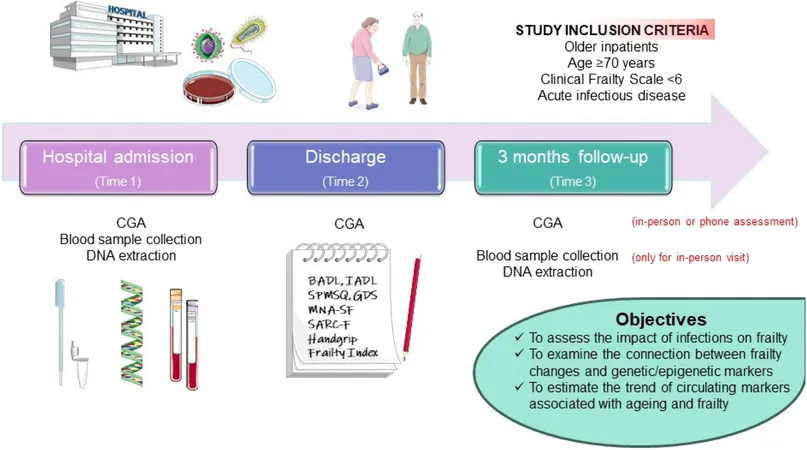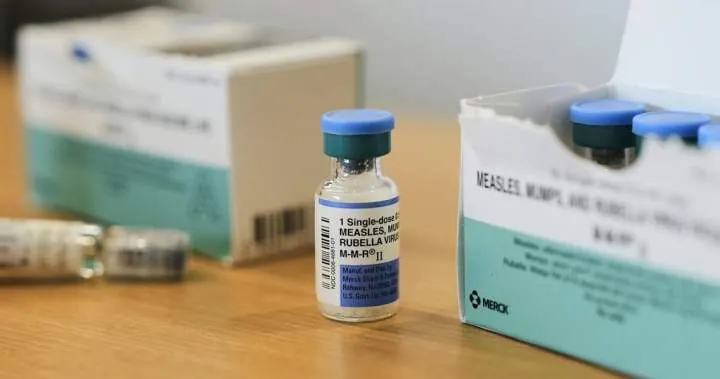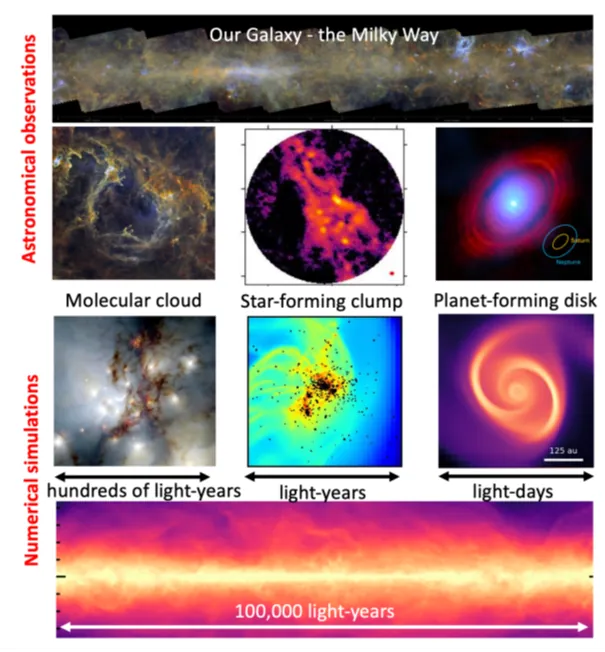
Unveiling the Hidden Forces Behind Frailty in Hospitalized Seniors: Insights from the INFRAGEN Study
2025-07-23
Author: Amelia
Understanding Frailty: A Growing Concern for Aging Populations
As our global population ages, frailty—a syndrome marked by diminished biological capacity and increased susceptibility to stress—poses a serious public health challenge. It's linked to a range of adverse outcomes such as disabilities, cognitive decline, and heightened mortality rates. With infections exacerbating frailty, particularly amid hospital stays, understanding this complex relationship is more critical than ever.
The Link Between Infections and Frailty
Recent findings emphasize that frailty worsens age-related immune decay and chronic inflammation, making individuals more vulnerable to infections. Notably, frail patients admitted to hospitals for infections often face a higher risk of readmission and death. However, what remains unclear is how acute infections specifically drive changes in frailty over time.
The INFRAGEN Study: A Trailblazing Investigation
The INFRAGEN study aims to dissect the intricate effects of infections and their role in modifying frailty among hospitalized older adults. This groundbreaking research will assess clinical, biochemical, and genetic markers upon admission and track changes in frailty over three months post-discharge to reveal if epigenetic modifications, such as DNA methylation and telomere length, have predictive power over frailty trajectories.
Goals of the INFRAGEN Project
1. **Assess Infection Impact:** Examine how different types of infections, especially those triggering inflammation, affect frailty from admission to discharge. 2. **Explore Genetic Links:** Investigate whether variations in DNA methylation and telomere length correlate with frailty changes. 3. **Monitor Biomarkers:** Analyze trends in inflammatory markers that could mediate the impact of infections on frailty. 4. **Track Long-Term Effects:** Assess how infections shape frailty over a three-month follow-up, considering demographic and clinical factors.
Study Design: Collaborating Across Italy
This multicenter, observational study spans several Italian hospitals, including S. Anna University Hospital and Padua University Hospital, focusing on adults aged 70 and above with mild or no frailty prior to hospitalization. Patients facing terminal illnesses or severe frailty won’t be included to ensure accurate assessments.
Data Collection: A Comprehensive Approach
Participants will undergo assessments at hospital admission, discharge, and three months later through detailed interviews, validated questionnaires, and blood sampling for genetic and biochemical tests. Segments will address not only frailty but also background factors like sociodemographic details, medical history, and neurological status.
Uncovering the Biological Markers of Frailty
Analysis will include monitoring gene expression, global DNA methylation, and telomere length to determine their roles in frailty progression. Additionally, inflammatory markers will be quantified using advanced technology to assess their correlation with patient outcomes.
Expectations and Implications
The findings of the INFRAGEN study may illuminate pathways linking infections to frailty and provide insights into how genetic predispositions influence health outcomes in older adults. This research has the potential to reshape clinical practices, offering concrete strategies to mitigate frailty in hospitalized seniors.
A Call for Broader Awareness
While many studies have touched upon the influences of infections on health, INFRAGEN seeks to clarify these connections within the frail elderly demographic specifically. With persistent risks of heightened frailty evident post-infection, this research stands as a pivotal step toward better understanding and addressing the health challenges faced by our aging population.
Dissemination of Findings
CThe results of this study will not only contribute to scientific literature but also be shared through national and international conferences to foster awareness and encourage further exploration in the realm of geriatric health.









 Brasil (PT)
Brasil (PT)
 Canada (EN)
Canada (EN)
 Chile (ES)
Chile (ES)
 Česko (CS)
Česko (CS)
 대한민국 (KO)
대한민국 (KO)
 España (ES)
España (ES)
 France (FR)
France (FR)
 Hong Kong (EN)
Hong Kong (EN)
 Italia (IT)
Italia (IT)
 日本 (JA)
日本 (JA)
 Magyarország (HU)
Magyarország (HU)
 Norge (NO)
Norge (NO)
 Polska (PL)
Polska (PL)
 Schweiz (DE)
Schweiz (DE)
 Singapore (EN)
Singapore (EN)
 Sverige (SV)
Sverige (SV)
 Suomi (FI)
Suomi (FI)
 Türkiye (TR)
Türkiye (TR)
 الإمارات العربية المتحدة (AR)
الإمارات العربية المتحدة (AR)